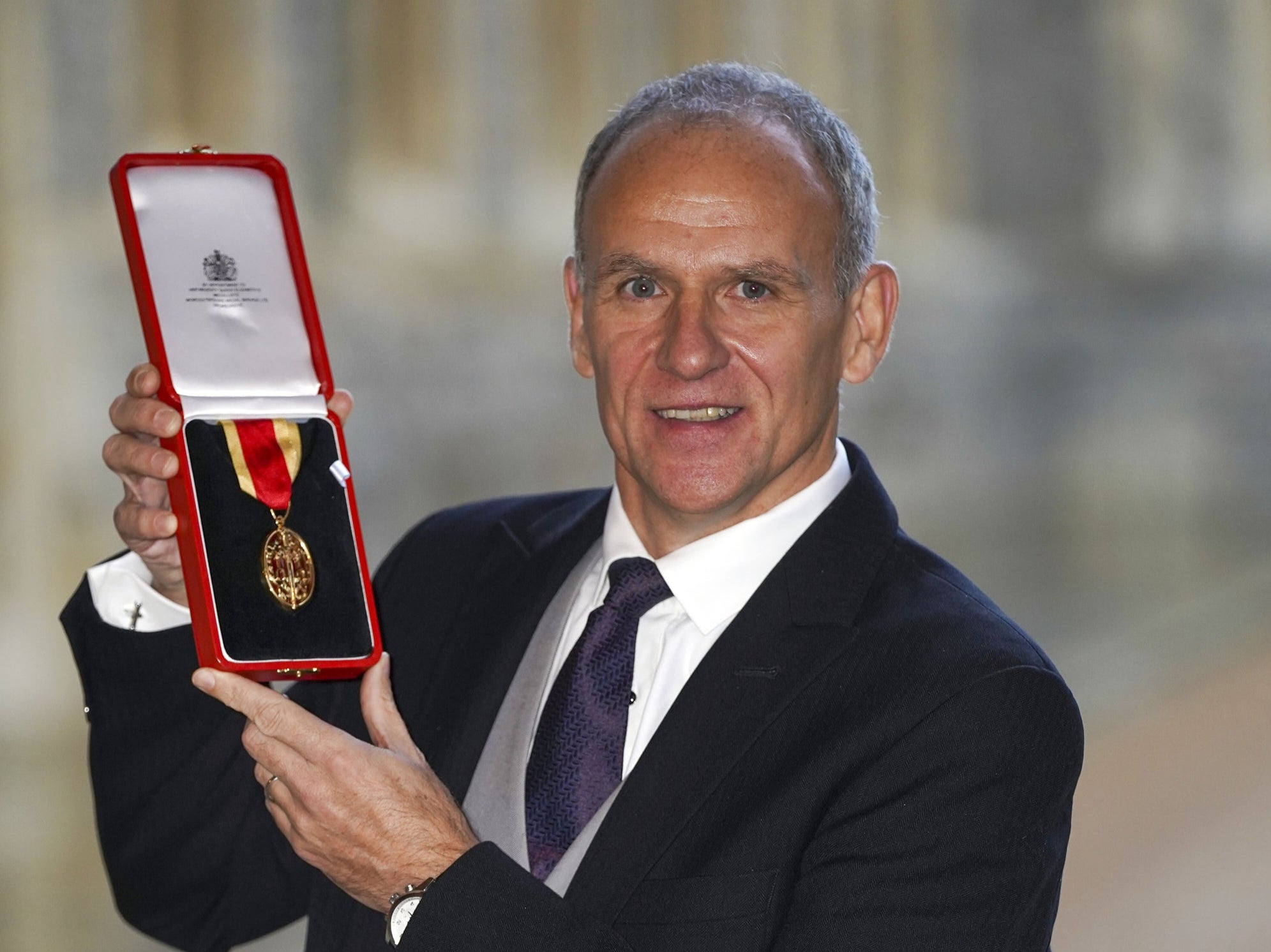Ex-Tesco boss ‘humbled to get knighthood on behalf of food industry heroes’
Sir Dave Lewis, 56, is now advising the Government on how to fix the supply chain crisis.

Your support helps us to tell the story
From reproductive rights to climate change to Big Tech, The Independent is on the ground when the story is developing. Whether it's investigating the financials of Elon Musk's pro-Trump PAC or producing our latest documentary, 'The A Word', which shines a light on the American women fighting for reproductive rights, we know how important it is to parse out the facts from the messaging.
At such a critical moment in US history, we need reporters on the ground. Your donation allows us to keep sending journalists to speak to both sides of the story.
The Independent is trusted by Americans across the entire political spectrum. And unlike many other quality news outlets, we choose not to lock Americans out of our reporting and analysis with paywalls. We believe quality journalism should be available to everyone, paid for by those who can afford it.
Your support makes all the difference.Tesco’s former chief executive has said he feels “honoured and humbled” to have received a knighthood on behalf of people in the food industry who “put feeding the country first” during the pandemic.
Sir Dave Lewis 56, who is advising the Government on how to fix the supply chain crisis, was recognised for his services to the food industry and to business.
After collecting his honour from the Princess Royal at a ceremony at Windsor Castle he said: “It’s a recognition for an awful lot of people in the food industry in the pandemic.”
He described their work in getting food to people during the lockdowns as “just a phenomenal achievement” and added that “it makes me think of when the pandemic started and all the amazing things that people did”.
Sir Dave stepped down from the supermarket giant in September last year after turning around its fortunes following a major accounting scandal.
Last month, he began working with the Prime Minister and the Chancellor of the Duchy of Lancaster, Stephen Barclay, on the supply chain problems that have led to petrol and other shortages.
He said on Tuesday: “I am volunteering with the Government to help them with supply chains.
“It is definitely not a day off but it is definitely a day to reflect on what an awful lot of people did at the start of the pandemic.”
Sir Dave said the changes which had to be made Tesco at the start of the pandemic were similar to what happened across the industry.
He recalled that the shielding measures which the Government put in place at the time for vulnerable people meant that 35,000 colleagues were lost from the workforce.
He said the situation left a Tesco executive asking: “So how do you still run the business when you are losing 35,000 colleagues?”
Sir Dave said: “In that first six weeks we recruited nearly 50,000 more people and doubled the delivery capacity to people’s homes just so that people could, while they were isolated, get the food they need – that was just such a tremendous change in the way that people worked and it was happening in difficult circumstances.
“People were concerned but they very much put feeding the country first, which was a remarkable thing to be part of.”
The run-up to Christmas has meant the effectiveness of the nation’s supply chains has again come under the spotlight.
Sir Dave began his advisory role last month when No 10 said he would work on both immediate improvements and any necessary long-term changes to UK supply chains for goods.
He also works with Government officials to quickly resolve acute, short-term issues.
A statement said this would include “both identifying the causes of current blockages and pre-empting potential future ones, and advising on resolutions either through direct Government action or through industry with Government support”.
Sir Dave, who is based in the Cabinet Office and has been appointed until the end of the year, is also co-chairing a supply chain advisory group and a new industry taskforce.
The Covid-19 pandemic, container shipping costs and the blockage of the Suez canal are among a range of factors which have hit global supply chains over the past year.
The recent fuel crisis was caused in part by a shortage of lorry drivers.
Brexit and staff shortages have been added pressures.